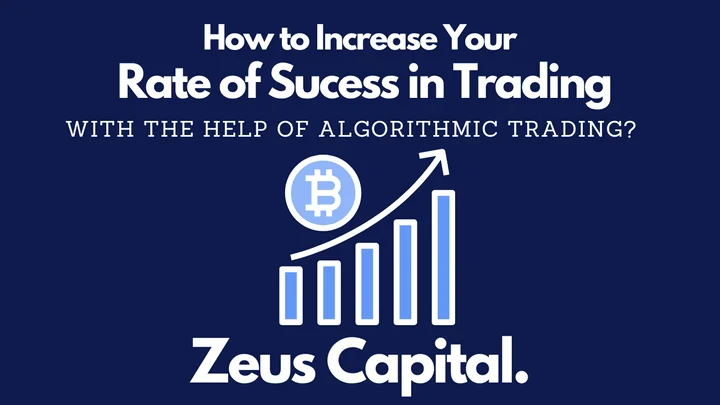
How To Increase Your Rate Of Success In trading With The Help Of Algorithmic Trading?.
STOCK MARKET TRADING ALGORITHM, ALGORITHMIC TRADING HEDGE FUNDS, FOREX TRADING ALGORITHMS
What is the success rate of Algorithmic Trading?
What is your expected rate of return from trading? 5%? 10%? 50%? Or even higher? For higher rates of yield, should you trade stocks and shares or trade in foreign-exchange markets? Is short-term trading more profitable than long-term trading? How can you minimize your trading costs?
If you are a trader, be it professional or individual, you must be having these questions regularly popping up in your head. Probably a more recent question traders or those who are thinking of being a trader are asking is whether they should opt for mainstream trading models or the algorithmic trading, which is the computerized and automated version of stock market and forex trading. In my honest and humble opinion, I would go for the latter! Let me tell you why.
Making money out of trading
Trading can be a lucrative business when done in accordance with the playbook. Besides, it is not the most difficult job on earth. There are a number of plus sides to becoming a trader. First of all, being a trader can be one of the most flexible freelance works you could ever think of. Traders enjoy the luxury of turning any place on earth into their office. As a trader, you can work from your home, while travelling on a coach or when you are on holiday overseas.
As long as you have access to a computer and the internet, you have your office with you. However, traders could find themselves under immense pressure with the excitement of gains or the risk of losses. Furthermore, they might have to stick at it for hours in front of a computer. But is it possible to make things that are easy even easier? Once you are introduced to forex trading algorithms, there are shortcuts to make every step of your trading quicker, error-free and automatic.
Trading or Algorithmic Trading?
Imagine you have hired a personal assistant who gets to the office and turns your computer on in the early morning in order to start trading and never takes a break. Imagine that he records every price change, places buy orders at prices you think are profitable and sells when the trade offers a profit of say 5 percent. Although a quite realistic plan, this scheme is very likely to be costly. When stock market trading algorithms get in the picture, things can dramatically change to your advantage.
A computer program can be run on a server 24 hours 7 days a week 365 days a year. It sounds amazing, doesn’t it? When running a software on a server, you don’t even need to switch your own computer on since everything can go on in the background on a server computer. Called “automated trading”, stock market trading algorithms do all the work on your behalf with the help of computer technology. This modern way of trading has already attracted so much attention that algorithmic trading hedge funds have started to proliferate. Likewise, investment and trading start-ups like Zeus Capital, has been providing algorithmic trading services at competitive rates.
Better timing
Algorithmic trading or automated trading has so many advantages over conventional trading methods. One of the key advantages that algorithmic trading presents is better timing. Thanks to the speed and convenience of algorithmic transactions, placing forex and stock market orders with an accurate timing is possible. While there are time delays that result from switching between operations in traditional trading, instant buying and selling can be done in algorithmic trading. Sometimes, late reaction to market forces can be highly costly, either decreasing your profit or leading to greater losses.
Less emotional pressure
Another key consideration with regard to trading is emotional pressure involved in trading process. Given that there can be significant amounts of gains and losses at stake, trading can be a war of attrition for traders, especially in a highly volatile market or during periods of financial instability. For that reason, minimizing psychological factors that might shape the trading decisions is of pivotal importance. Since computers and software are not emotional living things, automated algorithmic trading procedures are immune to these human-induced risk factors.
Exposure to errors
Automation and computerized systems are always less error-prone than systems controlled by humans. Machines are not distracted, machines don’t have low days or forget about things just because they didn’t sleep well last night. When carefully designed and structured, software can be very precise and error-free. However, it should be noted that due to internet or connection related issues, automated systems can also be exposed to failures.
Testing
Finally, another key advantage that algorithmic (automated) trading presents is that it can easily be tested. With different configurations, a great number of trading strategies can be implemented so as to measure their respective success rates. Besides, testing makes further improvements possible.


Leave a Reply